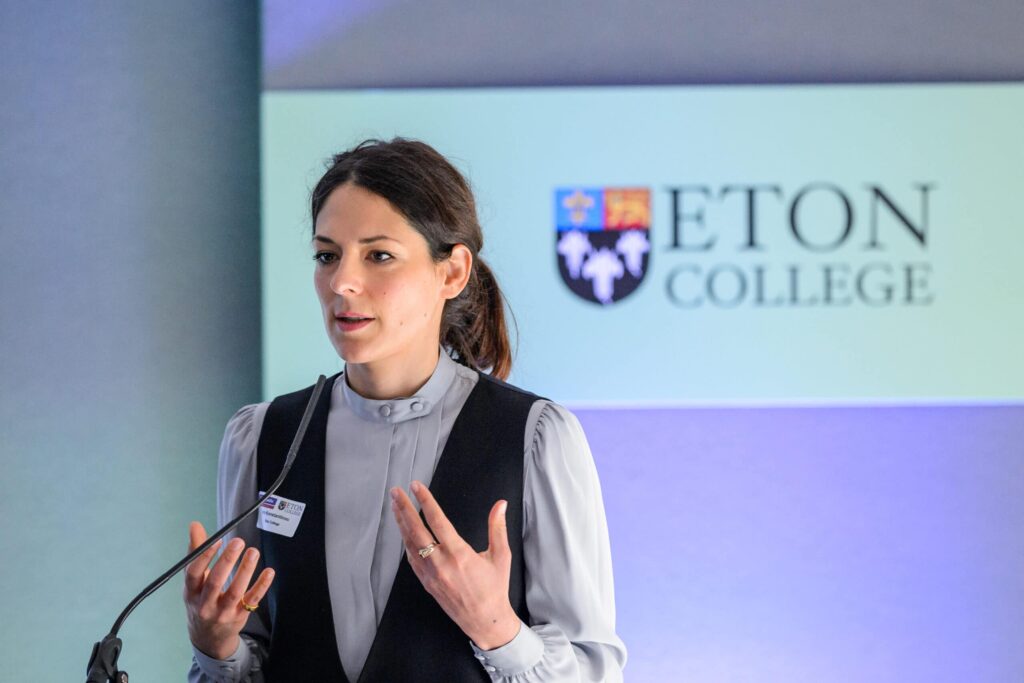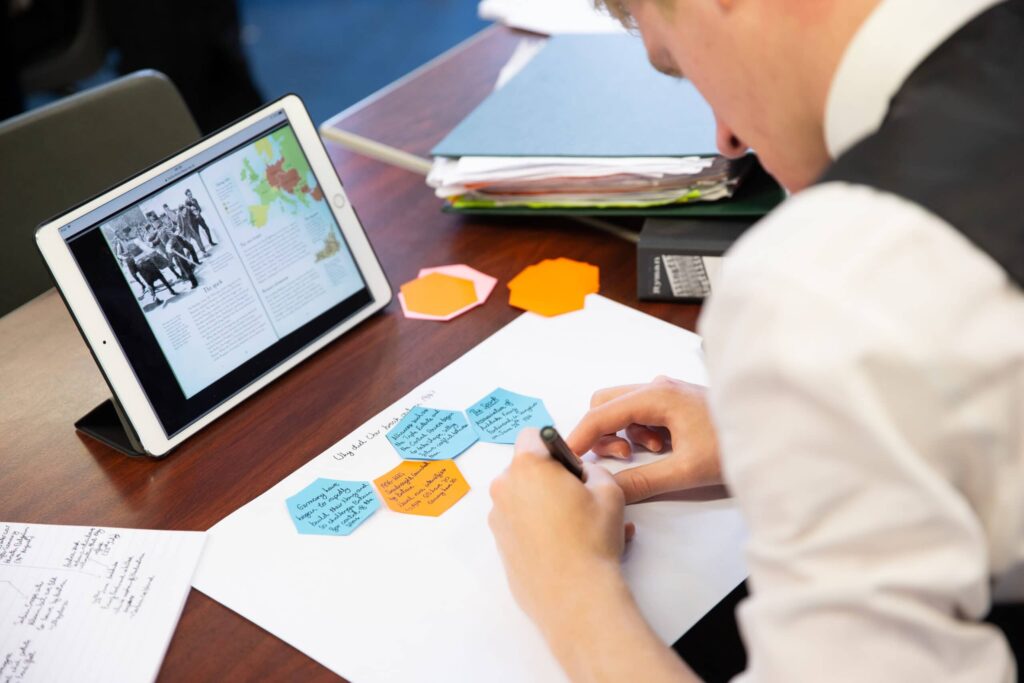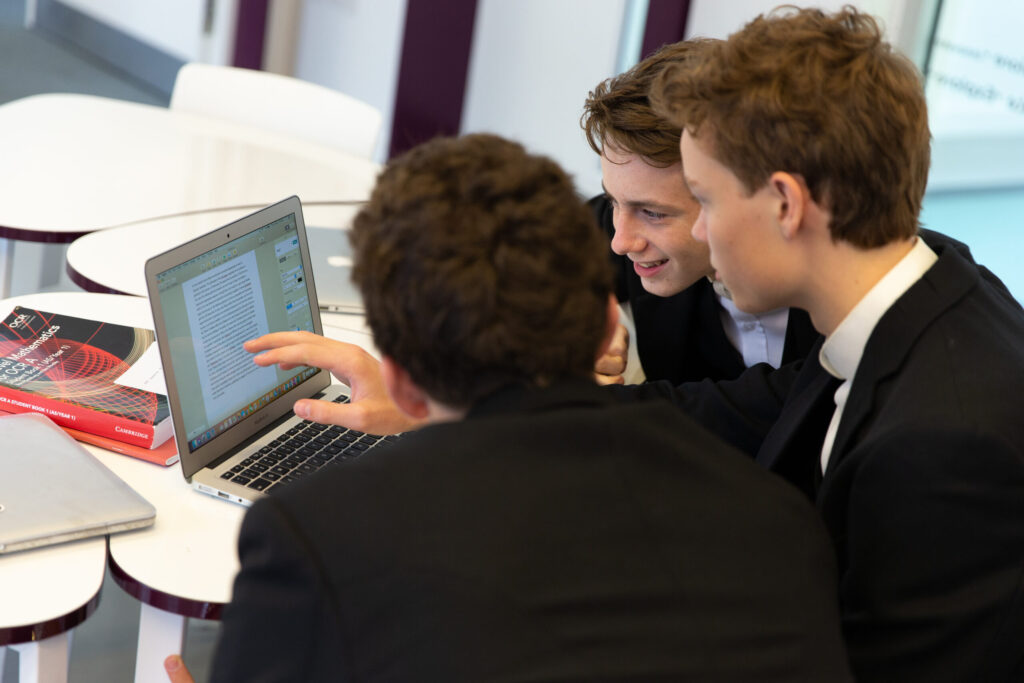This blog post is based on a talk given by Dr Sol Gamsu for Eton’s Education Society which was was organised and attended by boys. Dr Sol Gamsu is a sociologist of education working at Durham University. His work explores elite education, social mobility, post-16 education and the geography of schooling and higher education across the UK. Recent work has examined policy and discourse on social mobility in education, the economic gap between state and private schools and the geography of private school participation and free school conversion. In terms of educational policy, Sol Gamsu was one of the co-founders of the Labour Against Private Schools campaign, nicknamed #AbolishEton. His talk for Eton’s Education Society explored the sociological study of elite education, as well as a discussion on the contemporary policy and politics of elite education.
Gamsu began by asking us to consider the notion that, in the UK, elite education tends to dominate the way in which prestigious institutions operate and as a result, we need to think more carefully about the impact this has on rates of inequality. As the work by Francis Green and David Kynaston demonstrates, families who access private education tend to be highly concentrated among the affluent and for families with an income upwards of £300,000, six out of every ten children are privately educated. Therefore, the relationship between income and those going to private schools is extremely close.[1]
Aaron Reeves, a sociologist at the University of Oxford, expands on this in his study analysing the individuals listed in Who’s Who: an annual publication which lists the most important and influential individuals in the UK.[2] Reeves’ study found that there is a positive relationship between those listed in Who’s Who and those who went to private school and therefore, we can deduce that privately schooled people tend to dominate certain ‘influential’ professions. One of the reasons for this, Gamsu suggests, is that private schools enable their students to see the world as something they can change and transform; however, this is not always the case for students in the state sector.
It is often noted that one of the key characteristics exhibited by these ‘influential’ people is their ability to talk extremely confidently about topics that they may not know much about. Rubén Gaztambide-Fernández discusses this in his 1991 study of elite education in Canada where he argues that to live or bluff one’s way through situations tends to be expected by people from elite institutions.[3] To achieve this, one needs to master a particular language and learn how to play a certain game; however, this approach is neither ethical nor moral.
Embodying Elite Culture
Another key element of elite education, Gamsu argues, is being able to embody elite culture, as exemplified by the French sociologist Pierre Bourdieu when he claimed: ‘we learn bodily’.[4] This not only includes how we dress but our ways of being and moving in certain spaces. Gamsu uses universities as an example of this, explaining that when people arrive at university, they do not all come with the same experiences or same degree of cultural or social capital. As such, these new undergraduates may not feel as comfortable embodying these spaces and consequently, may experience a sense of rupture, suffering and discomfort.
This alienation tends to stem from the unique architecture of elite spaces. This becomes even more problematic when we stop recognising that others are feeling alienated. For example, David Cameron once described the houses of parliament as ‘half like a museum, half like a church and half like a school’.[5] However, as Gamsu points out, most people’s schools do not look like Westminster.
Bourdieu explains this notion using the concept of habitus. Habitus refers to one’s socially ingrained habits, skills and dispositions, as well as the way that individuals perceive the social world around them and react to it. Bourdieu claims that “[W]hen habitus encounters a social world of which it is the product, it is like a “fish in water”: it does not feel the weight of the water, and it takes the world about itself for granted”.[6]
Therefore, if you move through a space and neglect to notice that it is intimidating to others, then inequality has stopped being visible. Gamsu argues that elite education is a mechanism which helps to create this ease and forms spaces where certain people are comfortable but others are not. These processes have a tendency to create and reinforce inequality and this is something which can percolate through schools, universities and then more broadly, through the power structures of society.
Financing of Elite schools and Hierarchies of Wealth
Eton, Winchester, Harrow, Rugby, Christ’s Hospital (and to some extent, Latymer Upper) have the highest levels of investment of all private schools. This economic capital is transferred into cultural capital and as we have seen in the previous section, can help to ensure a continuation of inequality.
Gamsu points out that we should also consider the links between slavery and the financing of elite schooling. Gamsu and his colleague, Justice Aina, are currently exploring these links through an analysis of those compensated by the Slave Compensation Act in 1837. The act authorised the Commissioners for the Reduction of the National Debt to compensate slave owners in the British colonies of the Caribbean, Mauritius, and the Cape of Good Hope. Gamsu and Aina are in the process of analysing this list and comparing it to the alumni of different private schools. Their research shows that Eton had the highest number of alumni who were compensated as a result of this act, with 107 Etonians being compensated for enslaving nearly 28 thousand human beings.
Social Policy: “Abolish Eton”
The Labour Against Private Schools campaign, founded by Gamsu and his colleagues, calls for the integration of private schools into the state sector. A motion was passed at the Labour Party conference in 2019 calling for an end to private schooling and for more integration, including:
– The withdrawal of charitable status and other public subsidies/tax privileges from private schools.
– Ensuring universities are more proportionate when admitting students from the state and independent sectors.
– Endowments, investments and properties held by private schools should be redistributed across the country’s educational institutions.
Gamsu defends the aims of this campaign by arguing that the broader reform of the education system is their main purpose and that private schools are not the only source of educational inequality. However, the nickname “AbolishEton” stems from the fact that Eton is highly emblematic of the elite school system and its name is world-renowned.
In his closing statement Gamsu asked the audience to consider our collective responsibility as people who learn and work in educational institutions that reproduce power and inequality and to challenge the way in which these institutions operate.
[1] Francis Green and David Kynaston, Engines of Privilege: Britain’s Private School Problem, (London: Bloomsbury, 2019).
Sol Gamsu, ‘Moving up and Moving out: The Re-Location of Elite and Middle-Class Schools from Central London to the Suburbs’, Urban Studies, Vol. 53, Nov. 2016, pp. 2921–2938, doi:10.1177/0042098015601593.
[2] Sam Friedman and Aaron Reeves, ‘From Aristocratic to Ordinary: Shifting Modes of Elite Distinction’, American Sociological Review, Vol. 85, Apr. 2020, pp. 323–350, doi:10.1177/0003122420912941.
Aaron Reeves et al. ‘The Decline and Persistence of the Old Boy: Private Schools and Elite Recruitment 1897 to 2016’, American Sociological Review, Vol. 82, Dec. 2017, pp. 1139–1166, doi:10.1177/0003122417735742.
[3] Rubén Gaztambide-Fernández, ‘Bullshit as resistance: justifying unearned privilege among students at an elite boarding school’, International Journal of Qualitative Studies in Education, Vol. 24, 2011, pp. 581-586, DOI: 10.1080/09518398.2011.600272
[4] Pierre Bourdieu, Distinction, trans. by Routledge Kegan and Paul, 1984 (Oxford: Routledge, 2010).
[5] Mark Steel, ‘The trouble with parliament is it just doesn’t have enough privately educated MPs’, The Independent Online, Available: < https://www.independent.co.uk/voices/comment/the-trouble-with-parliament-is-it-just-doesn-t-have-enough-privately-educated-mps-10027178.html> Accessed: 17 March 2022.
[6] Pierre Bourdieu and L. Wacquant, An Invitation to Reflexive Sociology, (Chicago: University of Chicago Press, 1992).




